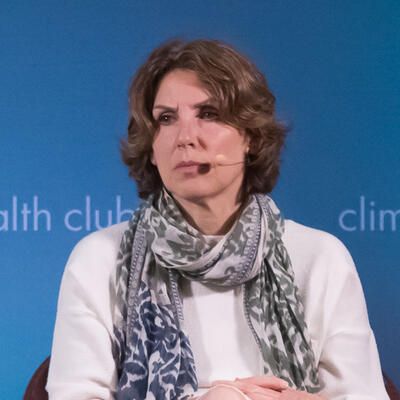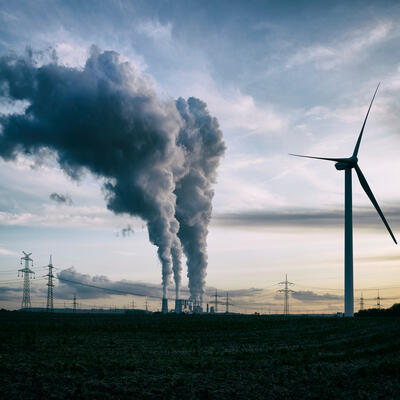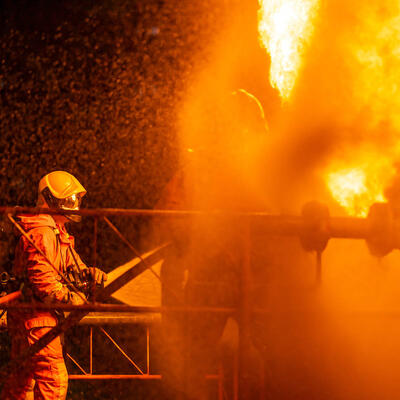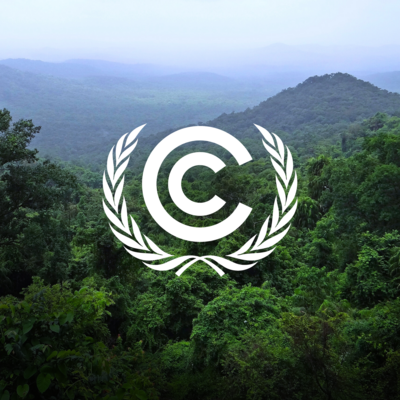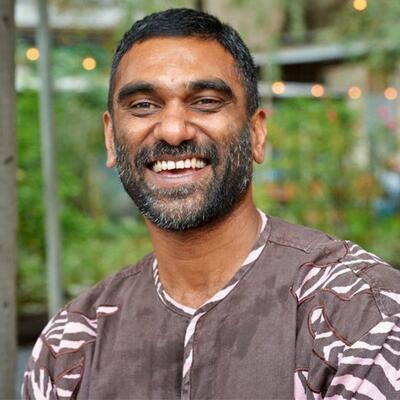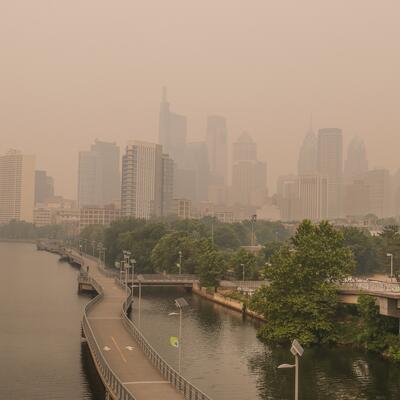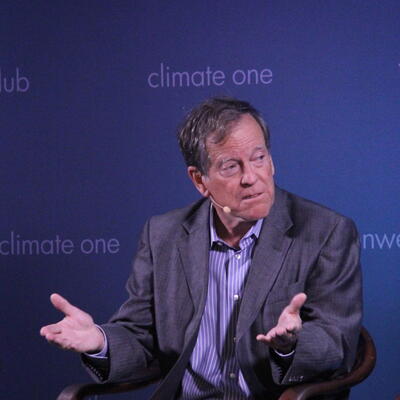
A Paris Progress Report
Guests
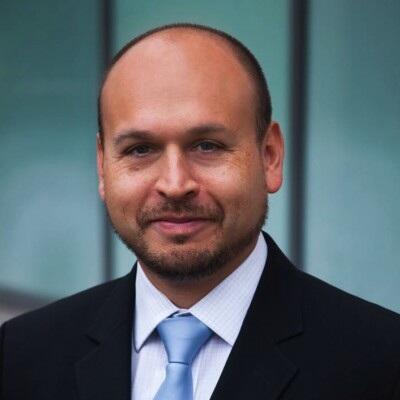
Gil Duran
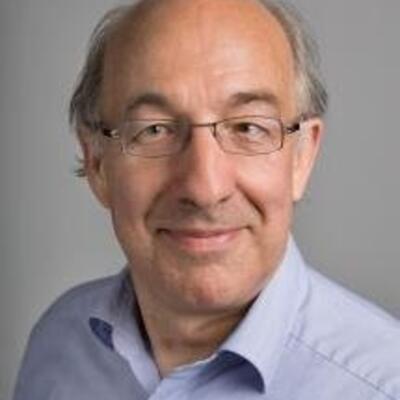
Dr. Bill Hare
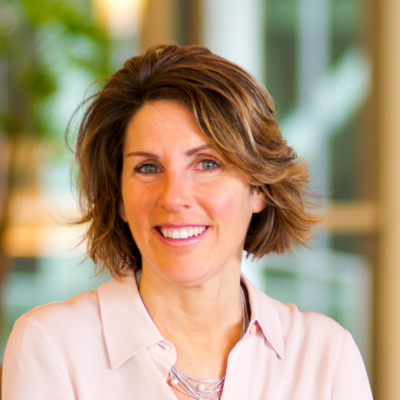
Amy Myers Jaffe
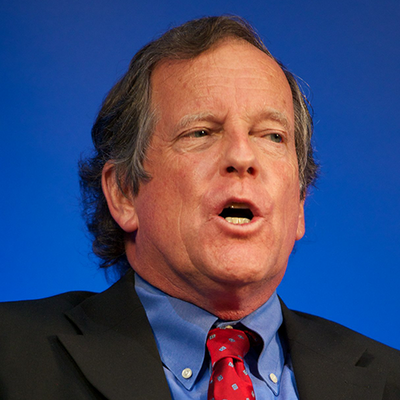
Carl Pope
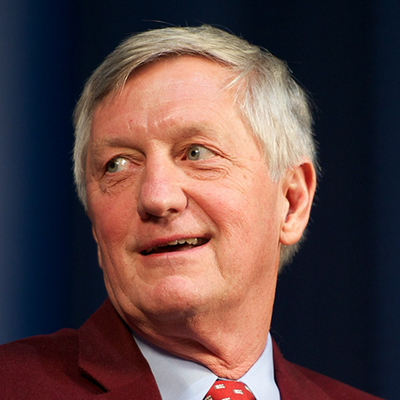
Jim Sweeney
Summary
In June 2017, President Trump announced his plan to withdraw the country from the 2015 Paris Climate Accord, claiming it disadvantaged the United States. The symbolism of the American government’s retreat overshadowed the reality that the U.S. business community has embraced a low-carbon future. “We committed under Paris to do nothing we weren’t gonna do anyway and that we aren’t doing anyway,” says former Sierra Club chairman Carl Pope. Many countries have also reaffirmed their commitments to the Paris agreement. But how much progress has really been made, both at home and abroad?
Full Transcript
Announcer: This is Climate One, changing the conversation about energy, economy and the environment.
Donald Trump: The United States will cease all implementation of the non-binding Paris accord.
Announcer: In June 2017, President Trump announced the US plan to withdraw from the Paris Climate Accord. But despite its strong symbolism, the move has done little to dampen America’s drive for clean energy.
Carl Pope: Donald Trump took his hand off the tiller and America kept sailing towards a lower carbon future. That’s because America wants to go there, that’s because it’s profitable.
Announcer: Along with numerous US cities, states, and businesses, many countries have reaffirmed their commitments to the 2015 agreement. But has that been mostly talk with little action?
Bill Hare: If we measured talk I think there’d be lots of countries who could be classified as role models. So we look at the numbers.
Announcer: A Paris Progress Report. Up next on Climate One.
Announcer: What grade should the U.S. and other countries get on their Paris report cards? Welcome to Climate One – changing the conversation about energy, economy and environment. Climate One conversations – with oil companies and environmentalists, Republicans and Democrats – are recorded at the Commonwealth Club of California, and hosted by Greg Dalton.
I’m Devon Strolovitch. In June 2017, President Trump announced he'll start to withdraw the country from the Paris Climate Agreement reached by 195 countries in 2015, claiming it disadvantaged the United States. In fact the deal allows each country to set their own customized and voluntary path toward energy fitness. The symbolism of the American government’s withdrawal overshadowed the reality that the U.S. business community has embraced a clean-energy future. So what progress has been made toward meeting the goals of the Paris agreement, at home and abroad?
In the first part of today’s show, Greg Dalton welcomes Carl Pope, former executive director of the Sierra Club, and now an energy and environmental consultant. He’s co-author with Michael Bloomberg of the 2017 book Climate of Hope: How Cities, Businesses, and Citizens Can Save the Planet. Here’s their conversation about a progress report on Paris.
Greg Dalton: So June 1, 2017 Donald Trump announced his intention to pull out from the Paris Climate Accord. Imagine Trump saying what he said. What was your reaction and your feeling on that day when he announced that?
Carl Pope: I was not surprised I was appalled. And it seemed to me that the heart of the folly was that the president kept saying he was pulling out of Paris because it was a bad deal. I'm gonna venture the United States never signed an international treaty that was more to our self-interest unless perhaps when we conquered most of the Southwest from Mexico. That was a pretty good treaty for us and Paris was pretty much as good. We committed under Paris to do nothing we weren’t gonna do anyway and that we aren’t doing anyway. Other countries committed to do things that were very important to us that they begin to do. So it was very one-sided in our favor, and I said I don't think the president has a clue what’s in it.
Greg Dalton: There was hope at that point that Ivanka, even Rex Tillerson former CEO of Exxon Mobil would convince him to stay in. That didn't prevail. A lot of companies stood up and said hey, stay in this thing and provide some predictability. Didn't happen.
Carl Pope: It didn't happen and that was this was I think a harbinger of what the rest of the Trump administration has been like. You will occasionally see signs of sensible thinking and people around him will take his instincts and try to tame them, and eventually his desire for disruption trumps all.
Greg Dalton: It does. But the Paris climate accord is voluntary, right? It’s not binding it doesn't have the status of a treaty. And what is the recourse if someone, countries don't meet their commitments. Is it name and shame, is it, what are the pressure points for noncompliance?
Carl Pope: The underlying premise of Paris is very different than the way we were thinking about climate diplomacy in Copenhagen or Kyoto. The historic understanding was, oh in order to solve the climate problems countries have to sacrifice. Now we recognize that in order to solve the climate problem what needed is for countries to innovate. And innovation is profitable innovation makes people healthier, innovation makes people safer, but it's hard work. So it's not that it happens automatically because it's good for us but it's good for us. It's not only good for the climate it’s good for the country doing it. And you can see this in United States we have actually since Donald Trump became president been cutting our emissions faster than we were under Barack Obama. We are now cutting our emissions faster than any other large economy on the planet and we are doing so largely in the utility sector, largely by replacing expensive coal with efficiency, natural gas, wind and solar. All of which are cheaper. As a result, wholesale rates for American power have fallen 25% during the same period of time that emissions from the utility sector have also dropped by more than 25%. So we’re cleaning up our power sector because really not fundamentally cause we care so much about the climate but because utility customers in Oklahoma and Texas want cheap power.
Greg Dalton: But there was, people talk about decoupling economic growth from carbon emissions. That's the goal to not have the sacrifice you talked about from 2014 to 2016 global emissions kind of flattened out. People thought okay decoupling is happening. 2017 global emissions went up again. Why?
Carl Pope: If you look at the numbers in 2017 one of the reasons they went up again is because there was a real shortfall of rainfall in countries that were heavily dependent on hydroelectric power like China. So trying burned more coal because China had less hydroelectricity. That's gonna be true as long as we’re so reliant on hydro as a source of low carbon electrons. Once we have hydro we have on shore wind we have offshore wind we have solar we have rooftop solar. Once we diversify our renewable power portfolio it won't be vulnerable to those up-and-down tweaks. But the fundamental fact is, there was a very urgent message in Paris in 2015 that said, we have to peak by 2020. The fact is, it's not that we haven't already peaked, you’re gonna have little ups and downs it’s not gonna be a steady pathway. But we’ve actually seen far fewer emissions since the Paris agreement, than the Paris agreement assumed. That does not mean we’re out of the woods. We are not moving fast enough. We need to accelerate, but the fact is, we are making more progress than what’s anticipated when nations stood and sign the Paris Accord.
Greg Dalton: Is it possible that Trump made Paris more popular and effective than Obama ever could have?
Carl Pope: I think it's unequivocally the case. There's no doubt because what Trump did was to make Paris about American global leadership. Again I think the intense reaction to withdrawal from Paris was not about Paris. It was about America's role in the world. Donald Trump was saying the United States is not going to be great again. Because for most Americans greatness is about leadership and they looked at the withdrawal from Paris and said that's not leadership.
Greg Dalton: We did a, by coincidence, we did a program at Climate One on June 1st the day Trump announced his withdrawal and Jim Sweeney, Energy Institute at Stanford worked in the Ford White House that was his main point was ceding American leadership on a key point. After that announcement Mike Bloomberg who you co-authored a book with, Jerry Brown got together and did America's pledge, there’s We're Still In the group of companies and the cities around the country. So tell us about those two reactions to the Trump announced withdrawal.
Carl Pope: Well, when Trump announced his withdrawal there was a spontaneous flood of wait a minute he doesn't speak for me. From mayors, from governors, from CEOs and I think this was particularly important in the corporate sector. The corporate sector did not want to pick an argument with the president about climate. That's not what CEOs get paid to do, pick fights with presidents. But Trump forced them into the game. They were sitting on the sideline and Trump by withdrawing from Paris threatened their global leadership. Part of what enables American companies to make money in China or Africa or Latin America or Europe, is that the United States is a global leader. So what Trump did was a direct economic threat to American business and American business rallied around and the first thing that happened was everybody came together in 24 hours around a statement which said we are still in. We are committed to Paris and we’re gonna do our part to fulfill it. It was a reassurance message to the world. It was a solidarity moment in the United States and it was a symbol of American leadership. And once that happened, Mike Bloomberg and Jerry Brown realized that the world was going want to know was this really happening. It was gonna be important to measure it, it was gonna be important to report it and it was gonna be important to leverage it and use it to encourage other cities and other states and other companies to come in too and to do more ambitious things. So they decided to create America's pledge which I serve as the vice chair of along with California ARB chair Mary Nichols and we are in the process we’ve turned in one report on the scale of the reaction by the real American economy the American economy is decarbonizing. The American economy is innovating. And people in the world the rest of the world need to understand that because that will reassure them not so much that they can afford to do it too, but that it's profitable. People understand that, you know, we’re a capitalist society. And if our businesses are doing something and there's no national law that requires them to. None of the stuff that's happening is happening because the federal government is making it happen because the federal government has taken its hand off the tiller. It’s like if you were to sailing ship and the person who was supposed to be steering the boat took their hand off the tiller. What's supposed to happen is the ship is supposed to turn up into the wind and stall out. Well, Donald Trump took his hand off the tiller and America kept sailing towards a lower carbon future. That's because America wants to go there. That's because it's profitable.
Greg Dalton: A couple of the pillars of the U.S. pledge of Paris were the Clean Power Plan and the increase of mileage efficiency more than 50 miles a gallon. Trump has taken a sledgehammer to both of those. Remember it was the U.S. first of all, Barack Obama, President Xi getting together, U.S. and China open the door to Paris. U.S. had to have credibility that was clean power plant and CAFE. Now Trump has taken a sledgehammer to both of those is that affecting U.S. leadership and its progress toward Paris? Those were the pillars.
Carl Pope: Well, I don’t, first I don’t think – Donald Trump would like us to think that he's a big guy who wields a sledgehammer. I think he's more like an ice, you know these things used to break up ice in your refrigerator and he's pounding at the base of the Washington Monument with it. And I don't really think it's gonna do that much and we can see the results. Since he announced the end of the clean power plan, the clean power plan basically ended the day he was elected because he announced it and everybody understood. Since that time, the rate of retirement of coal-fired power plants in United States has accelerated. More coal plants will retire this year than retired the last two years that Barack Obama was president combined. We have cut our utility emissions. Texas, the state which was headed by Energy Secretary Rick Perry and he was the governor of it. And now that Rick Perry is gone from Texas this is the year in which Texas will get more of its electricity from the wind than it gets from coal. And the reason for all of this is quite simply coal is not competitive anymore.
Greg Dalton: And the one I like also I think that you mentioned in the report is Oklahoma. That Oklahoma, the home of Scott Pruitt now gets more wind power than coal power which –
Carl Pope: And Scott Pruitt spent eight years as Atty. Gen. trying to stop Oklahoma from doing that. And he totally failed again because he was taking an ice pick to the Washington Monument. The fact is Oklahoma is using so much wind because oil companies in Oklahoma want cheap electricity. Lot of the users of that power are oil companies. And the same thing is gonna happen with the clean power plan. The president’s announced he wants to go after it. Ford and General Motors have said, please, please don't do that. And there were always 12 states that lined up with California and said they were going to have clean car standards, even if Washington didn't. Now they're 18. It was always a coastal thing you had California, Washington, Oregon, and then you had New England and the Mid-Atlantic States. Now you've got Minnesota, Illinois and Iowa, Republican Iowa was one of the states to join this lawsuits against Trump. So yes I understand there's no particular reason for people to believe me when I say that clean energy is cheaper than dirty energy. On the other hand, when oil companies in Oklahoma are buying wind power instead of coal, you might believe oil companies.
Greg Dalton: For sure.
Announcer: You’re listening to a Climate One Progress Report on the Paris Climate Accord. Coming up, Greg Dalton continues his continues his conversation with former Sierra Club chairman Carl Pope, and we’ll also listen back to some of the program we recorded on June 1st 2017, the day President Trump made his Paris announcement.
Amy Myers Jaffe: Even though every day and my Twitter feed is like, oh yes, he’s gonna pull out of Paris. I’ve really kind of felt in my heart that it’s such a stupid thing to do that in the end it wouldn't happen.
Announcer: That’s up next, when Climate One continues.
Announcer: We continue now with Climate One, and more of Greg Dalton’s conversation with former Sierra Club chairman Carl Pope about progress on the Paris Climate Accord.
Greg Dalton: Somewhat of a debate raging foreign policy and other places about whether 2° is attainable, achievable. Paris was set for 2° and there is a sort of ambitious action now we need to get to 1.5 reduction preindustrial times. There's been some fairly pointed debates about 2° can't happen we’re deluding ourselves. What do you think, is 2° delusional, is it aspirational?
Carl Pope: I think 2° is not delusional. It's achievable but it's aspirational. But the key thing to understand is the people who say we can't do it are looking at the wrong mathematical function. If you look at where we are today we’re in bad trouble. Today's emission rates are horrendous 2° is not achievable with today's emission rates. If you look just at how much we've cut, how fast are we moving, how fast are we cutting every year, we’re still in big trouble. But if you look at acceleration if you look at how are we doing today, remember three years ago emissions were climbing radically. Now, global emissions are probably flat. That's a big acceleration. If you draw that line, it shows that five years from now emissions will be coming down radically. And if emissions come down by 3% a year we cannot only meet 2°, we can beat it and we get down below into a safer zone. Whether we can get all the way to 1.5 that might take till the end of the century. And we’re gonna have some climate change, I want to be clear. 2° does not mean the climate is stable, 1.5° doesn't mean the climate is stable. We’re gonna have to cope with and adapt to some level of climate change. What we’re trying to avoid is climate change that’s so overwhelming that half of the state of Florida vanishes under the water. That's hard to adapt to.
Greg Dalton: So you think we’re on track for Paris other people say not so sure there's a lot of urgency in the climate community. There’s a lot of despair there's a lot of anxiety, there’s this pre-traumatic stress disorder that psychiatrists have identified. Do you ever have moments where you have to feel like you fake optimism because that's what's gonna be effective and that's what people want to hear from you?
Carl Pope: I don't find it possible to fake optimism. So actually no. And I don't want to say we're on track. I mean we are moving and we are moving faster than we were moving under Barack Obama that doesn't mean we’re moving fast enough. We’re not moving fast enough. The problem with this challenge is that people have thought about it that there was gonna be a moment when we solve it because they thought about it as a single problem. It's not a single problem. It's a symptom of five or six problems. But the thing that we have to understand is we have to look ahead. We keep looking at climate to the rearview mirror. Look at what we've done in the last 30 years. We need to be spending much more of our energy looking forward and saying what are we likely to do in the next 30 years. What do we want to do just for selfish reasons in the next 30 years and is there a gap between what we want to do and what we need to do. It’s not clear to me there is a gap. Interestingly, there have been three new studies done by three different international consortia of the public health experts. Each one of them concludes that the medical savings from solving the climate problem will more than pay for the solution. That doctor's bills alone will go down enough if we actually meet the 2° goal that it will pay for the whole bill. There will be no bill. We will save enough on health care to pay for climate solutions and then we'll have all these new power plants and all this great new stuff but.
Greg Dalton: A hundred billion dollars was a planned transfer of wealth from industrialized countries to developing countries as part of goes back to Copenhagen, Paris. That money transfer is not happening. That's a big part of the equation to help developing countries get the technology they need to do the things that wealthy countries can afford. How can that be addressed?
Carl Pope: Well the most important thing to understand is that there are two different problems and they probably have different solutions. Problem one is it costs capital to build solar panels and wind turbines. And we need solar panels and wind turbines in Nigeria and we need them in Bangladesh and we need them in the Philippines, those countries don't have enough domestic capital to build those things. Guess what, American banks, European insurance companies, Middle Eastern sovereign wealth funds would love to invest in solar panels and wind turbines in those places. They're good businesses. The problem is it's very hard to loan money into those countries long-term because we don't have the right kind of global financial system. So the most important thing we can do is to facilitate direct investment. There's trillions of dollars of capital, in Europe, United States and Middle East and Japan looking for yield sitting on the sidelines. We need to get that capital on the field. The second problem is damages. When there are hurricanes and floods and other things caused by climate change in countries like Bangladesh we need a much more robust international assistance system that really ensures people against natural disasters and moves in to help them. So there are two problems. The clean energy side which is a business problem and the loss and damage side which is natural disasters and is a matter of a stronger global safety net.
Greg Dalton: Right and yeah in many ways climate is big part of Climate One is climate is not just an environmental issue it’s a public health issue.
Carl Pope: Exactly. You’ve been making that point.
Greg Dalton: It's much about much more than the environment. So what you're talking about this polarization domestically, there’s this rise of tribalism globally and nationalism in different places around the world. And yet that seems like we’re going tribal at a time where we need to go collective to this great tragedy of the commons that is climate. How are we gonna solve a global problem when we’re becoming more tribal in our behavior and thoughts?
Carl Pope: It would be very difficult frankly, if the world of technology was back where it was in Copenhagen. If solving climate was a big sacrifice, it's hard to share sacrifice in a tribal world. Tribes don't share sacrifice well. If climate is a big opportunity which is what the number show if climate is an economic opportunity, it’s much easier for tribes to compete to grab the opportunity. That’s something tribes do pretty well is they get competitive with each other. Let us be very clear. One of China's major national electrical companies has made a series of very strategic investments in the advanced materials department of major U.S. universities including some here in California. They have hired those universities to figure out how to make the cost of transmitting renewable electricity long distance unbelievably cheap because China doesn't want to steal our technology anymore. China wants to develop its own technology. China is off to the races and the United States under its present leadership is not even in the starting blocks. But fortunately for the world and unfortunately for the United States, India is at the starting blocks Europe is at the starting blocks. Korea is at the starting blocks, Latin America is. Everybody else is in this race. We have temporarily dropped out. That is bad news for us, not actually bad news for the climate because everybody else will develop the technology that we could have developed.
Greg Dalton: Yeah China mass-produced solar panels. Drove down the price, created a public good and the U.S. response is to slap tariffs on the import of solar panels.
Carl Pope: Exactly. And, you know, and now that wind and solar are cheaper in the United States what do we see the president's cabinet doing? Trying to find ways to resurrect Harry Truman administration style industrial policy to keep uncompetitive coal plants open. I mean, literally, the model that is being suggested for Donald Trump of what it is to be a great American president is to be Harry Truman and nationalize the utility sector so we can keep unaffordable power plants open and deny electricity customers access to cheap electrons. That is pretty strange.
Announcer: Greg Dalton has been getting a Paris Progress Report from Carl Pope, former chairman of the Sierra Club and now an energy and environmental consultant. As Greg noted earlier, on the day that President Trump announced the US plan to withdraw from the Paris agreement, Climate One recorded a program assessing the administration’s climate record up to that point. Greg’s guests that day were Amy Jaffe, Executive Director of Sustainability at the University of California Davis Graduate School of Management. Gil Duran, former spokesman for California Governor Jerry Brown and U.S. Senator Dianne Feinstein, and currently an advisor to billionaire climate advocate Tom Steyer. And Jim Sweeney, professor of management and engineering at Stanford University and Director of the Precourt Energy Efficiency Center. Let’s listen as Greg asks them about the Paris Accord on that day in June 2017.
Greg Dalton: Amy Jaffe, how did you feel when you heard the news, when you saw that statement about draconian burdens and those sorts of things.
Amy Myers Jaffe: You know, I was in line buying my lunch and I was sort of reading it on the sort of teleprompter, you know, where the TV is on silent. And it was almost surreal, you know, I’m always an eternal optimist and I really even though every day and my Twitter feed is like, oh yes, he’s gonna pull out of Paris. I’ve really kind of felt in my heart that it’s such a stupid thing to do that in the end it wouldn't happen, right. But I can’t –
Greg Dalton: You thought Rex Tillerson can talk him out of it.
Amy Myers Jaffe: You know, the truth is people were saying that Rex Tillerson was gonna talk him out of it. And, you know, if you think about how far we’ve come in terms of corporate response to climate change and all these things. The idea that as a country we were counting on Rex Tillerson to talk some sense into the president, you know, is really sort of an amazing statement but, you know, I talked to some journalists as a sort of unwinding before, you know, today and really truly, a lot of climate policy in this country is both designed and implemented at the state and city level. They’re at the forefront always have been in the forefront and you just have to roll the clock back a little in time and remember that under President George W. Bush, a lot of states took initiative. And I used to tell people when I give talks in Europe and people are so upset about American policy, about Kyoto. And I was able, you know, U.S. policy on climate is not actually made at the federal level. And even if you look at clean power plan, which was the fundamental showpiece of President Obama’s signatory to this climate agreement in Paris, you know, most states in the United States have made their commitments under the clean power plan. And most states are not gonna unwind those policies because they’re driving innovation in the state, they’re attracting corporations that have already made commitments to renewable energy, people are seeing it as future jobs. We’ve got China with a carbon price, we have Europe with strong technology drive coming from their car industry and from their trucking industry and from other segments. And so really truly when the president says that there were all these draconian things that his predecessor agreed to, a lot of those things are gonna stay in place. And one last point, not to overstate this but the one thing that I might have guessed, as an energy expert that the president would unravel and would make it hard for us to meet our climate obligation on the Paris, was that President Obama committed to have the oil and gas industry capture their methane leakage. And our Congress surprisingly sustained that policy, right and so the president couldn’t even undo that proposed regulation. So it is a little bit disingenuous to talk about these onerous things that we agreed to since we’re probably gonna do most of those things.
Greg Dalton: John McCain came in and offered a decisive vote on that keeping those methane regulations in place. Gil Duran, let's talk about three different touchstones, democracy, economy and the environment and the narrative that's been put forward here by the president saying that action on climate hurts jobs. Touch those three stones for us.
Gil Duran: Well, the whole Trump experience has been a waking nightmare and so this is just the latest installment. But at this point it's sort of something we are becoming accustomed to sadly because it's constant it doesn't stop. And so really to me the most striking thing because we knew this was coming was that every single thing Donald Trump said was the opposite of the truth. It was the reverse of the truth. And this is very deliberate and it's by design it's to tell this other reality that in reality when we talk about the role of the economy and with the role climate action place in the economy, it's our biggest opportunity. And China certainly realizes that what Trump is doing is against prosperity. When we talk about democracy and standing up and doing what’s right for the American people, this action only serves a very narrow interest of American society, people in fossil fuel companies. This is the opposite. This is against the best interest of the American people. It's against the democracy and we know that majorities of people even in Republican majority state supported staying in Paris and support climate action. And so, you know, everything he said was the opposite of the truth and we see this across the board and all of the issues. And to me, that's the scariest thing about it is when you're in a democracy and you’re doing nothing but lying what is your actual strategy and what is your endgame.
Greg Dalton: Jim Sweeney, there’s an amazing array of people and institutions that came out in recent days in support of the Paris climate agreement. As Amy just mentioned, Rex Tillerson and former CEO of Exxon Mobil, Gary Cohn, chair of the National Economic Council, Arch Coal, Peabody Coal, Chevron, Exxon, ConocoPhillips, IBM, Coke and Pepsi, when are they on the same side, Lindsey Graham, John McCain, all in favor of Paris. And when the president and it was clear he was gonna pull out of the Paris climate agreement, Jeff Immelt, CEO of General Electric said “Climate change is real, industry must now lead and not depend on government.” So where does the industry go, Jim Sweeney?
Jim Sweeney: I think this is actually consistent of what’s been happening over the last 20, 30 years now. What I found as quite remarkable is that the energy per dollar of GDP in the U.S. economy has been declining about 2% a year average for the last 40 years since the oil crisis in 1973. Some of that was federal government like fuel efficiency standards. Some of it was what the state and local governments did California has done a lot. But a large amount was what industry has been doing in innovating in ways to reduce energy in the products. General Electric has been a wonderful example. I mean even the airlines which we all love to hate it’s interesting to know that since the oil crisis in ’73, they use half as much energy per seat mile as they did in ’73. But per person mile, they use a quarter as much energy and this has been all private sector.
Greg Dalton: How does that math work, some people standing? How does that math work?
Jim Sweeney: Yeah, the planes are a lot fuller if anybody’s ever noticed.
Greg Dalton: Okay, okay.
Jim Sweeney: But its dynamic pricing, you check on the price of the flights one day, you buy it, go to buy it three days later, it’s an entirely different price. You try to use your frequent flyer miles and you can’t use it on this flight, but you can use it on that flight. It's all part of a large-scale optimization problems that the airline use in order to keep the planes full and so was to make more profit. But in the act of making more profit it uses less energy per seat mile. So right now, Jeff Immelt was absolutely right. Industry is going to take a lead in innovation, but so are states and local governments. You see cities around the United States and Canada that are taking very innovative steps in order to have more efficient use of energy or have cleaner energy. And I kind of keep focusing on more efficient use of energy because by a factor of 10 to 1 that's how we decarbonize our economy much more than the cleaner energy has been energy efficiency. So it’s been industry, state and local governments and individual households with change of attitudes that wasn't going to have to keep happening, and people gotta have to say just because the federal government is not doing it, just because the federal government leadership have their head in the stands, we don't have to. Because after all, an industry making a decision on its investments in new technologies is not gonna look just four years in advance. They look a long ways down the road. So people have to believe that after Trump, whenever that Trump administration ends, I’m not sure how long it'll take but however long it will take after that they’re gonna to have to live with the reality. And so I think industry is going to look beyond this.
Announcer: Jim Sweeney, Director of the Precourt Energy Efficiency Center at Stanford University, speaking at Climate One on June 1st 2017 – the day President Trump announced the US withdrawal from the Paris Climate Accord. Coming up, Greg Dalton gets an international Paris report card from physicist Bill Hare, one of the leaders of the Climate Action Tracker.
Bill Hare: Even countries that simply don't like the rating that we've given them have come to us and told us that. You haven't heard about who those countries are, so that's an indication level of trust that countries have towards the Climate Action Tracker consortium.
Announcer: That’s up next, when Climate One continues.
Announcer: You’re listening to a Climate One progress report on the Paris Climate Accord. We turn now to Greg Dalton’s conversation with Bill Hare, a physicist and climate scientist with 30 years’ experience in science, impacts, and policy responses to climate change. He’s a founder and CEO of Climate Analytics, and also one of the leaders of the Climate Action Tracker, recognised as one of the most credible sources of information on national and global action on climate change.
Greg spoke to Bill Hare from the Bonn Climate Change Conference in Germany to get his Paris report card.
Greg Dalton: So you tracked the progress of countries around the world toward their Paris commitments. Who are the role models, who’s doing the best so far, who’s getting an A?
Bill Hare: Well, really it’s relatively small countries like Ethiopia that are really getting top marks. When I say small I mean small economies, large populations, relatively poor countries who are doing the most actually relatively speaking. There are others that are making progress but by far not enough. But a very interesting example actually is India, which is moving towards a 2° compatible pathway. Not quite consistent with the Paris agreements, one and a half really but their massive investment and encouragement over renewable energy in India which is now cheaper than coal. And the slowdown of coal investments leads us to give them a higher rating than many other countries. And that is reflective of the policy settings in India and the way in which the Modi government has moved in particular to push forward climate change. They’re doing that not just because of economics I guess, but also because they are aware that they’re being looked at as a potential geopolitical leader there are way that China was moving forward. And so this an emerging sense of mild competition I guess you could say between China and India on climate change. And we’re seeing particularly other things that the Indian government is proposing, or talking about, such as their proposal to end the sale of internal combustion engine cars in 2030 or so.
Greg Dalton: On India’s talk about ending the sale of internal combustion cars. Do you give good marks for these words that come out of the mouth of a politician because some would say that, you know, politicians it’s easy for them to make pledges about the future when they know they probably won't be in office. So are you measuring talk are you measuring action and steel in the ground and dollars invested?
Bill Hare: Well if we measured talk I think there’d be lots of countries who could be classified as role models. So we look at the numbers and what policies governments have in place and try and calculate what that means. We look at the countries pledges as the NDCs, nationally determined contributions as they’re called and quantify what that means. And we may use a government statements perhaps to qualify an assessment if it’s on the border of one category or another insufficient or critically insufficient. Then we look at what the country is saying in the trend of what's happening. So there’s a bit of qualitative judgment involved there but generally we don't rate a country on promises to phase out fossil cars in 20 years unless they actually have a policy in place that moves that economy forward.
Greg Dalton: One country I noticed is Russia, the biggest emitter that has not ratified the Paris Climate Accord. Is Russia moving toward Paris, where are they on your rating scale?
Bill Hare: Well they are critically insufficient. Russia is a bit of an outlier actually, in the sense that it really hasn't joined the Paris agreement. It doesn't have anything in the way that climate policies. And, you know, I think we all worry a bit about where Russia might end up in terms of will it become an obstacle to progress? Will it cause trouble as it has historically? So it has a lot of fossil fuel interests, not just oil but coal. So it's a potential problem area. I think many tend to overlook the significance of Russia in this context. The paradox is that Russia could do an enormous amount of good if it moved in the direction of renewable energy and so on. It's also highly vulnerable to the impacts of climate change. So I think for many observers, the Russian situation is quite frustrating.
Greg Dalton: You rank Japan as highly insufficient is that because they went to coal after the denuclearization after Fukushima?
Bill Hare: Well in part, it's about coal in Japan, it's also about the dependence on natural gas and oil. I mean Japan is an interesting example because I have it already a highly efficient economy, and they have a massive potential to move in a cleaner direction. And I think that Japan is basically losing out a bit economically by not moving out of coal as fast as would be economically justified. So you know, since with its investments to, invest in even more new coal plant then it's going to be in a very bad position in relation to Paris agreement. It’s not necessarily the case that if you shut down or phase out nuclear power plant, you have to have an ongoing problem with a high carbon intensive economy. Germany also got a phase out of nuclear power underway and pending the next few years fully, has faced its own challenges in the same way that Japan has. But overall its trend and emissions is in the right direction not as much as it originally promised for 2020. But overall, I’m increasingly comfortable that the new government is going to move it faster in the coming year or so. So I think that Japan needs to look at that. Another problem with Japan that we’re also concerned about and have flagged is the investment that Japanese banks are making in coal development in Southeast Asia for example. That quite a number of Japanese banks are heavily invested in supporting new coal developments in the Philippines, Indonesia, Vietnam, and so on. And that could raise questions about financial stability. Japan hasn't really moved to provide the signal to its financial institutions that it's time to look in a different direction than carbon intensive investments. So that's another dimension to well actually both Japan and Korea in this context. Of course they’re not alone in making those kinds of investments. China also has a significant exposure in this area as well.
Greg Dalton: China has a small price on carbon other countries had one, there’s kind of been on and off, on and off price on carbon in Australia. Is carbon pricing is that a key driver you see where there's a price on carbon that countries are moving faster?
Bill Hare: Well, ultimately I think most economists would say you got to have a price on carbon in the long run to bring about the transitions needed to cause those small changes in behavior that add up collectively to larger changes in emissions reductions. The problem is that politically governments are having a hard time introducing and sustaining consistent carbon pricing. The Europe Union has had its trading system which worked at first but then after global financial crisis the EU TSC, training system price, more or less collapsed, it’s only recently it begun to rise again really. Australia is an even bigger debacle where I think one of the world's most comprehensive climate change packages was introduced five or six years ago that combined a range of different instruments. It set up a clean energy finance corporation it set up renewable energy agencies it had a carbon price system coming in building towards a trading system. It had measures to offset the cost of increased electricity in poorer households for compensation systems. It had a program that would've funded job transition and high carbon industries. So really it was a world-class system. And I say that because the Climate Action Tracker consortium evaluated that program some years ago. Then it was repealed by a conservative government under Tony Abbott, 2014, if I recall it correctly. And since that time there’s been virtually no policies at all. I think that it's hard to think of a single measure in Australia beyond the renewable energy target, which was a holdover from the previous government has made any impact on Australia’s emissions. So it's basically a climate policy free zone at present.
Greg Dalton: So that raises the question whether democracies which zig and zag Australia was if I recall the first national election in which climate change was a primary issue and it was heralded as a success and that it was undone by succeeding government. That raises the question whether democracies can stay the course and get the job done over the decades required or if other forms of government more authoritarian state-driven economies. You mentioned, you know, China comes to mind of course, even perhaps, South Korea. Are you seeing correlation of, you know, less democratic governments can stay the course over political cycles where democracies can't?
Bill Hare: Well I think the picture is pretty mixed. I mean sometimes the United Kingdom is accused of being the mother of all democracies and it, you know, indeed has stayed the course over a very long period of time on climate change through different governments both sides of the fence if you like. So that's an example of a government that has been able to move forward not always at the same rate not always in same way but it has moved forward as a body of politic. And then the counterexample I guess on democracy is Australia, but in the middle you have countries like India, which is the world's biggest democracy which is beginning to progressively move forward. Maybe not as fast as would be economically justified but the political pressures inside India to deliver to farmers and towns and villages access to electric energy, electric power for pumps, lighting and so on. And the government is finding the only way to cost-effectively do that is to roll out solar. That is an example of democracy at work. On the let's say more authoritarian spectrum, we've already mentioned Russia which is a fairly authoritarian government by any measure that has fairly bad history on climate policy in general. Not universally bad but I think overall not a good story to tell. China has also a fairly authoritarian government, and it has moved forward consistently in a way. But if you unpack the Chinese story a lot of the momentum on climate policy has stemmed from big city population level concerns about air pollution and the increasing unrest that has caused. And so the central government has reacted to try and bring in measures to reduce emissions which on the back of that began to eliminate coal and has begun to address automobile pollution, which is also a big issue in Chinese cities by moving towards electric vehicles. So that story is complicated because the Chinese political developments within a relatively authoritarian regime prompted by the outbreak of citizen concern in those governments reacting to that. Which is a good measure of the political effect that concerns about environment pollution and climate change can have on governments.
Greg Dalton: What’s been the impact of the U.S. announced withdrawal from the Paris Climate Accord. We’ve heard people in the United States say that Trump made Paris more popular than Obama ever could have domestically but internationally what’s been the impact if you're able to measure this of the U.S. saying we’re not gonna lead and we’re not gonna even, you know, be part of Paris?
Bill Hare: Might be a bit unkind to say bemusement but it wouldn't be far from the truth. I think that compared to when President Bush rejected the Kyoto protocol when it did cause a major crisis. The withdrawal of the Trump administration or the announcement the Trump administration doesn't intent ratify the Paris agreement caused a shock. But the whole system quickly coalesced around the momentum for the Paris agreement to proceed. And as a consequence at the international multilateral level where the Paris rulebook is being negotiated and so on. I don't say we've seen a really big impact actually. I think we see the same old problems we’ve always had with these negotiations. I don't see a fundamental problem like I did after the Kyoto protocol repudiation. At the domestic level in some countries there are voices that say look, the U.S. is not moving forward we shouldn't, we should wait, we should stop, we should go slow and we should watch out for what the U.S. is doing and basically put a pause on climate policies. Those voices, you know, varying influence, depending upon the country. I don't think they’re having a dominant effect at all actually. If anywhere, perhaps this is influencing most of all, the conservative government in Australia. One issue where the U.S. actually is playing a constructive engagement role in the present negotiations. It is contributing to discussions on transparency monitoring, reporting, et cetera in a constructive way. And I guess that may ultimately reflect the longer-term judgment of the United States. It needs to know what other countries are doing as much as anyone else.
Announcer: Greg Dalton has been getting a Paris Progress Report from Bill Hare, a physicist and climate scientist with 30 years’ experience in science, impacts, and policy responses to climate change, and one of the leaders of the Climate Action Tracker, recognised as one of the most credible sources of information on national and global action on climate change.
To hear all our Climate One conversations, subscribe to our podcast at our website: climateone.org, where you’ll also find photos, video clips and more. If you like the program, please let us know by writing a review on iTunes, or wherever you get your podcasts. And join us next time for another conversation about energy, economy, and the environment.
Greg Dalton: Climate One is a special project of The Commonwealth Club of California. Kelli Pennington directs our audience engagement. Carlos Manuel and Tyler Reed are the producers. The audio engineer is Mark Kirschner. Anny Celsi and Devon Strolovitch edit the show The Commonwealth Club CEO is Dr. Gloria Duffy.
Climate One is presented in association with KQED Public Radio.
